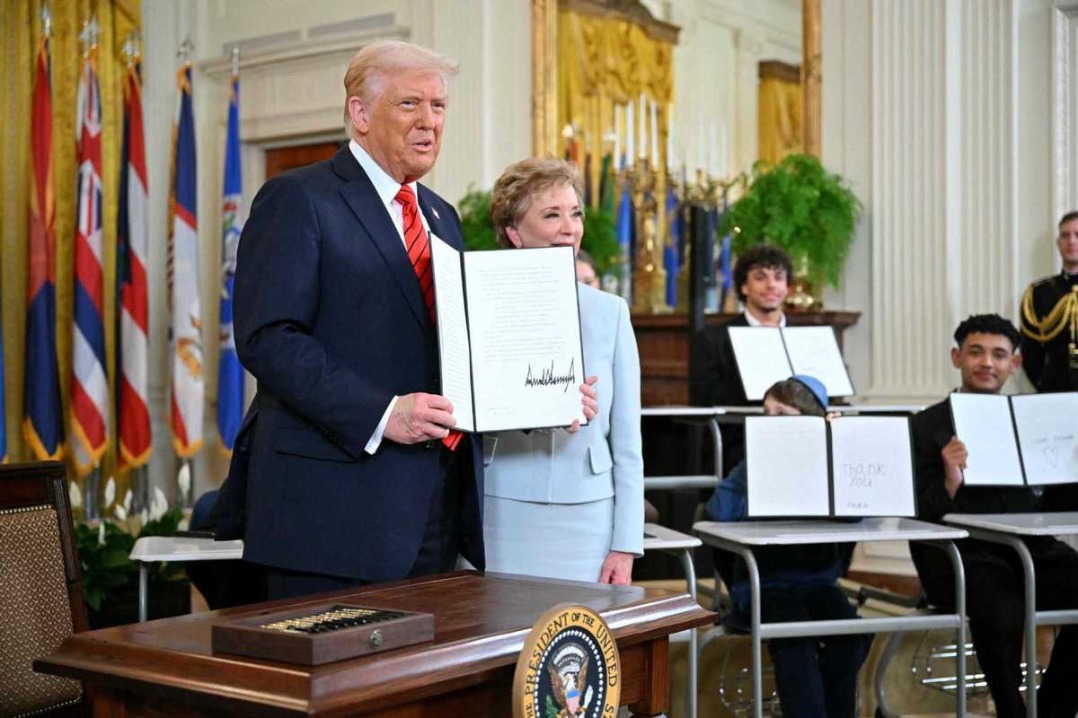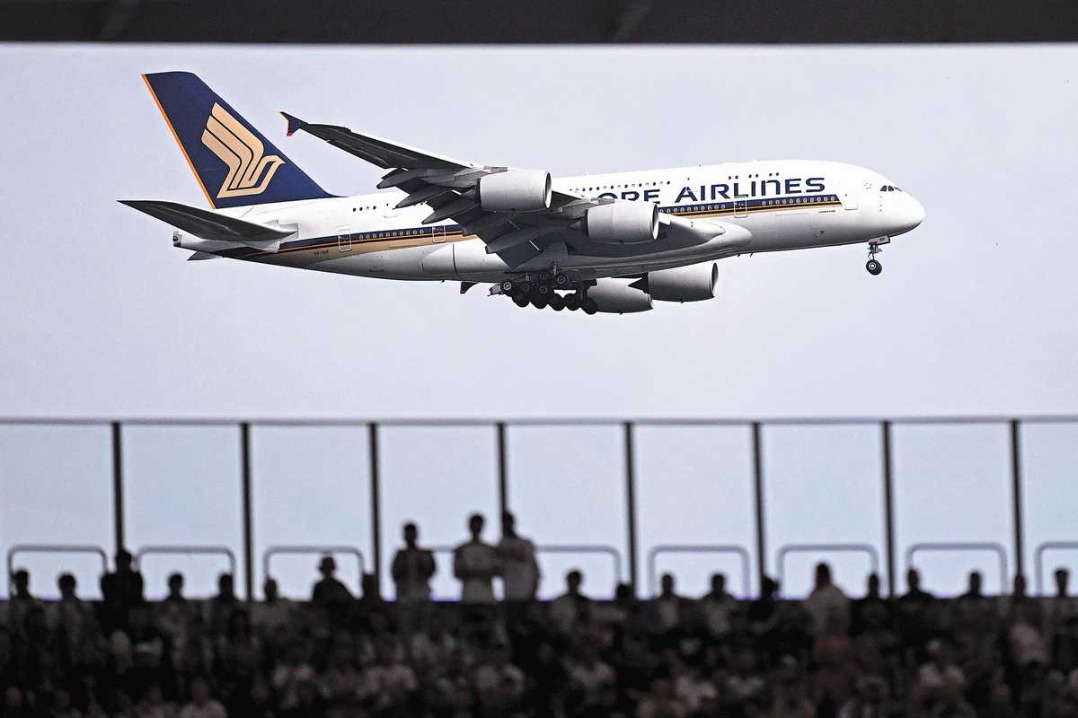Trump's policies drive clamor for 'safe harbor' gold
Tariffs and economic uncertainty push investors toward the reliable commodity

The price of gold soared to record highs this week as investors sought safe havens in a world reeling from United States President Donald Trump's infatuation with tariffs.
With some Trump's tariffs on imports into the US set to take effect on Tuesday and others expected to be announced on Wednesday, gold rose above $3,100 an ounce for the first time in history on Monday as investors sought tariff-proof investments.
Reuters said many people putting their money into the luxurious yellow metal were concerned about economic fallout likely to follow the implementation of Trump's tariffs. Others were concerned about US foreign policy changes, worsening US inflation, and a slowing US economy.
The price of gold has risen more than 18 percent so far this year, making consistent gains ever since Trump moved into the White House on Jan 20.
Experts said investors see gold as a traditionally safe prospect and a hedge against economic and geopolitical turbulence.
Banks are predicting the price of gold will continue to rise throughout the year and the Bloomberg business news agency said it thinks the commodity could be on course to record its largest quarterly gain for more than 38 years.
Analysts at Oversea-Chinese Banking Corporation Ltd, or OCBC, told Reuters: "For now, gold's appeal as a safe haven and inflation hedge has further strengthened in light of these geopolitical concerns and tariff uncertainty. We remain constructive on the outlook of gold amid ongoing global trade friction and uncertainty."
Goldman Sachs, Bank of America, and UBS have said gold will keep rising in price, with Goldman Sachs predicting it could hit $3,300 an ounce by the end of the year.
Gold's stellar performance follows Trump introducing tariffs in what he said is a bid to protect US industries and reduce trade deficits. His new import taxes include 25 percent tariffs on imported cars and auto parts, new tariffs on aluminum and steel, and 20 percent of tariffs on anything imported from China.
Trump has also said he will introduce additional "reciprocal tariffs" on April 2, a day he has been calling "Liberation Day" because he claims it will end his country's reliance on imports.
The clamor for gold comes as stock markets have been slumping badly in the lead-up to the raft of new tariffs taking effect. On Monday morning, markets in Europe fell following earlier steep falls in Asian markets that included Japan's Nikkei index closing more than 4 percent down and South Korea's Kospi sliding by 3 percent.
Analysts from ING told Bloomberg: "Trump's unpredictable trade policy has been the key driver for gold so far in 2025 … extending its momentum from 2024. We see uncertainty over trade and tariffs, along with central bank buying and inflows into ETF (Exchange Traded Fund) holdings continuing to buoy gold prices."

































